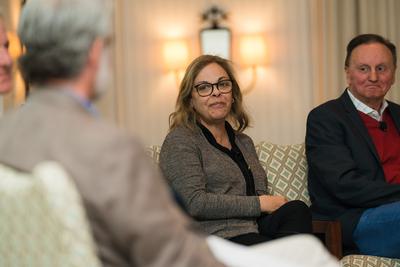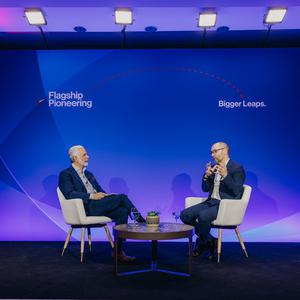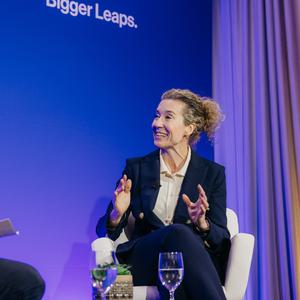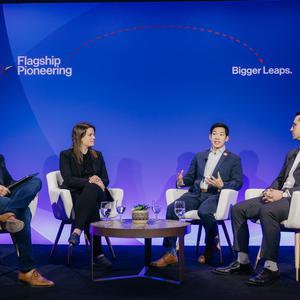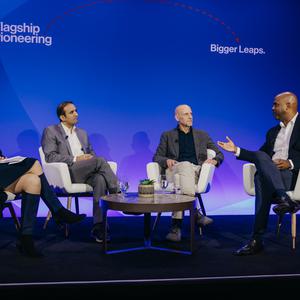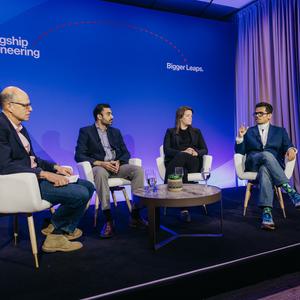Luisa Salter-Cid is the Chief Scientific Officer (CSO) of Pioneering Medicines, a Flagship initiative focused on conceiving and developing a portfolio of life-saving treatments for patients using technologies from across Flagship鈥檚 ecosystem. In her position at the helm of the Pioneering Medicines portfolio, Salter-Cid highlights data-driven science as central to drug development, explaining scientific plausibility must come before other drivers, such as opportunity, likelihood of success, or feasibility. With more than 20 years of experience in biotech and pharma, we wanted to sit down with her to learn more about Pioneering Medicines, drug development, and the evolution of the industry.
What was it about Pioneering Medicines that drew you to the organization?
In addition to the great people at Pioneering Medicines, this position allows me to exercise my passion for drug discovery and getting drugs to more patients sooner. It also allows me to leverage the technologies that will be critical to the next generation of medicines. My previous experience was largely with traditional modalities such as small molecules and antibodies, but newer approaches such as genetic technologies also have so much potential in that they can more precisely target the core of a range of diseases.
With so many platforms across the Flagship ecosystem, how do you determine which is right for a particular disease area?
The process of matching a platform to a disease is very deliberate. We start with the disease and identify the outcome that we want to achieve, either alone or in collaboration with partners. This work is mainly driven by our explorations team with support from research. In the case of cystic fibrosis (CF), for example, we partnered with the Cystic Fibrosis Foundation to correct mutations that have not been addressed by current medicines or to correct the entire defective gene as a potential cure for CF. We then determine the biological pathways associated with the disease progression and, from this foundation, survey the platform companies within the ecosystem that could target those pathways. For CF, Tessera鈥檚 Gene Writing platform has the potential to insert a whole new functional copy of the CFTR gene.
How does PM support the platform companies?
For many small companies, the primary focus is appropriately on developing the platform, so as they transition to drug development, we can provide some of the expertise they may be missing or that we have specifically acquired at Pioneering Medicines; but we always look to the platform companies as experts in what is feasible with their technology. We help them to determine the right disease area to demonstrate the platform and, for more established technologies, the best disease areas or biology to target. This involves first ensuring the science makes sense, and then helping them to match the platform to a disease with a high unmet need, which can be helpful for companies focused on initial proof of concept.
